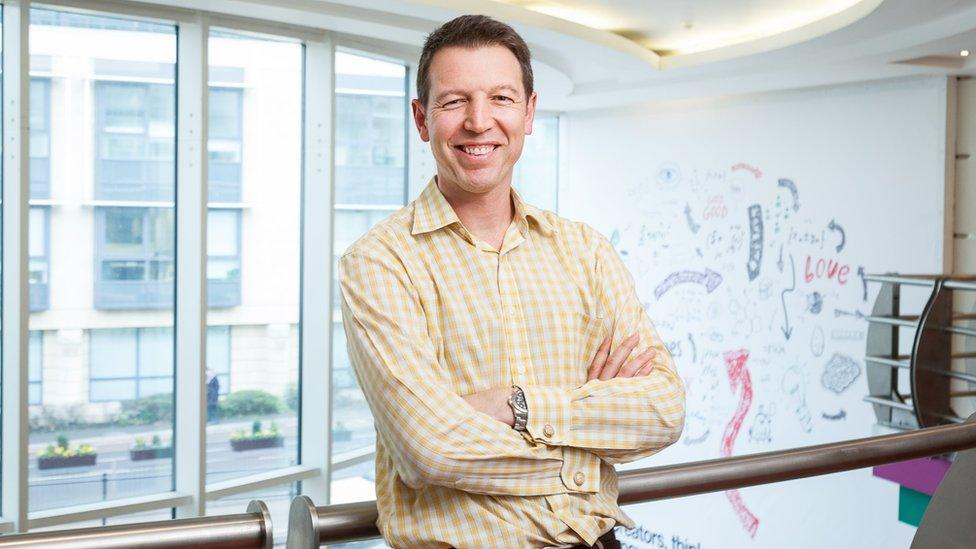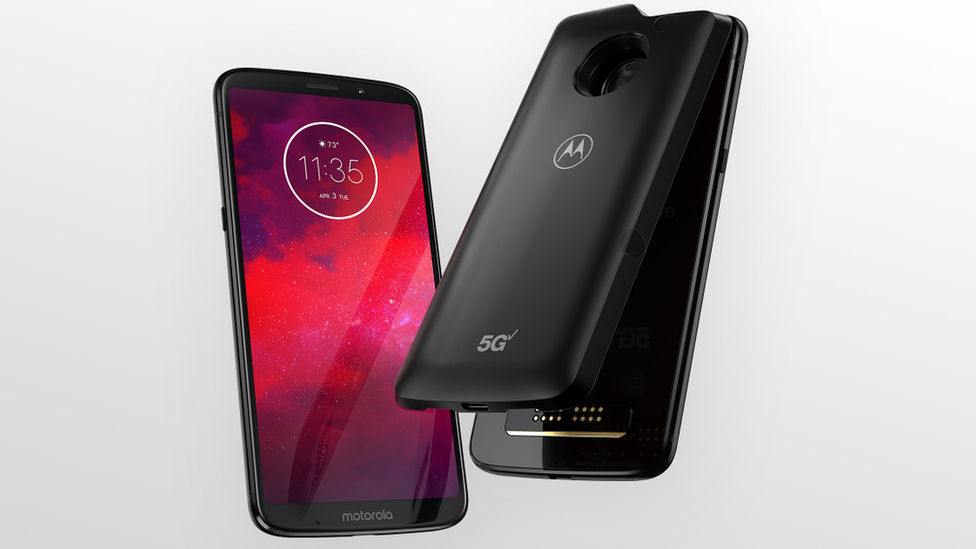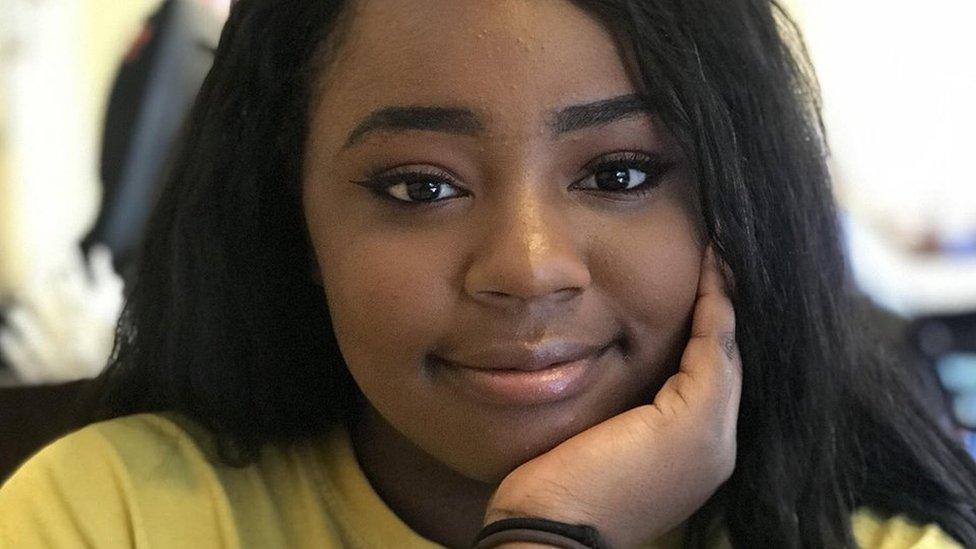5G will let users ditch fixed-line home broadband, says Three
- Published

Many families currently pay for a separate mobile and home broadband services
5G mobile data will be so reliable and fast most homes will no longer need a separate home broadband connection, according to one of the companies planning to launch a UK service.
Three UK's chief executive told BBC News there would be enough capacity on 5G to cope with demand, meaning households would be able to save money by ending their fixed-line contracts.
He predicts consumers will use 13 times as much mobile data in 2025 as today.
But one expert warned against "hype".
Three has said it intends to launch its first 5G services in the UK as soon as the middle of next year, external.
Its announcement coincides with news from BT's mobile division, EE, that it has switched on nine 5G trial sites in London, external.
Vodafone and Telefonica-owned O2 have also bought spectrum to launch 5G services of their own in the country.
Higher capacity
In theory, 5G could offer download speeds of up to 10 gigabits per second or even 20Gbps - although these are unlikely to be attained for many years if at all.
Most handsets are not yet capable of pushing 4G speeds to their limits, so UK networks are under pressure to convince the public of the need to upgrade having spent more than had been predicted on the spectrum auctioned to date.
As part of its pitch, Three is making the case that 5G will offer a "genuine alternative" to fixed-line copper and fibre services.

Mr Dyson has led Three UK since 2011
"Maybe not for the whole country, but certainly a significant majority of the country, I strongly believe 5G can offer a good enough home broadband experience for people to effectively ditch their copper [or fibre] connection," said David Dyson, Three UK's chief executive.
"The challenge in terms of why we can't do that today is that the mobile networks don't have the capacity with 3G or 4G. 5G changes all of that."
Capacity refers to the amount of data that can be handled at any one time rather than the speed.
Three already provides a 4G-based "unlimited data" home broadband service in London, called Relish, which it acquired last year.
But Mr Dyson said the business had to be careful how many people it signed up, to prevent its service degrading.
This, he said, would not be a problem with 5G.
But one industry-watcher said it was still unclear how reliable the technology would be.
"Stability is important for video streaming at HD and Ultra HD quality levels, and paramount for the gaming community," said Andrew Ferguson, from the news site Thinkbroadband.
"Full-fibre services are going to beat 5G as you have a connection as stable as the one that will be feeding the mobile masts and thus the variables of signal strength dropping due to a bus passing the home are avoided."
The government is currently pursuing a target of "full-fibre" broadband coverage to the whole UK by 2033, in which high-speed optical cables are used to bring data right up to buildings without having to rely on slower copper for part of the journey.
At present, only 5% of all properties have access to the full-fibre connections, according to the regulator Ofcom, external.
But Three's chief executive suggested the cost involved could help make 5G a more attractive option.
"Fibre-to-the-home for the small number of customers who value it and need it will probably provide a faster speed," Mr Dyson said.
"But I think for the majority of people, 5G will be a genuine alternative.
"It's still quite unclear to me, as I'm sure it is to many people, what is going to be the price of all these fibre-to-the-home deployments when it actually arrives
"It's expensive to dig up roads. It takes a lot of time and money.
"It's much cheaper and quicker to provide that connectivity via a wireless connection."
- Published28 January 2020

- Published18 October 2018

- Published4 October 2018
